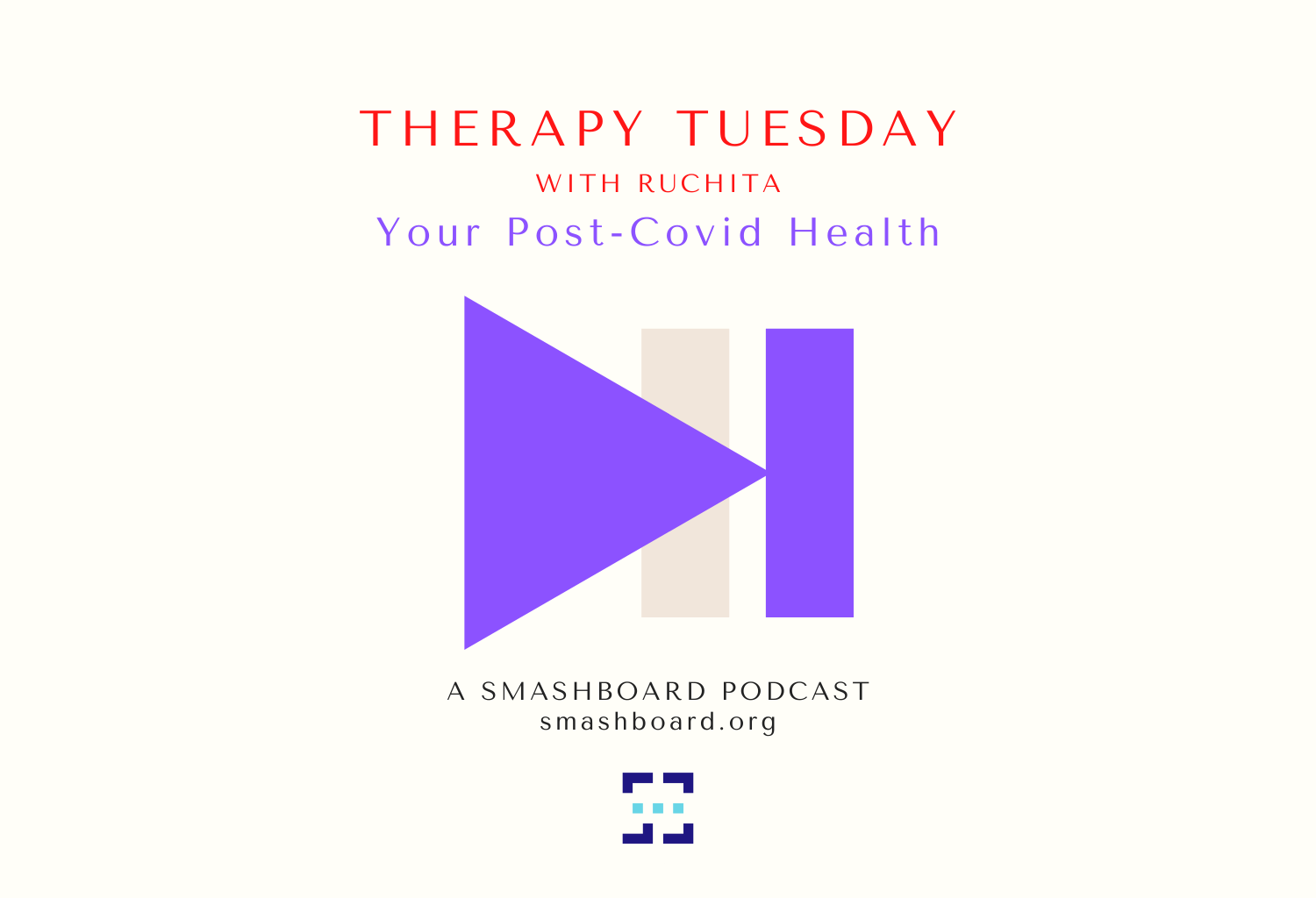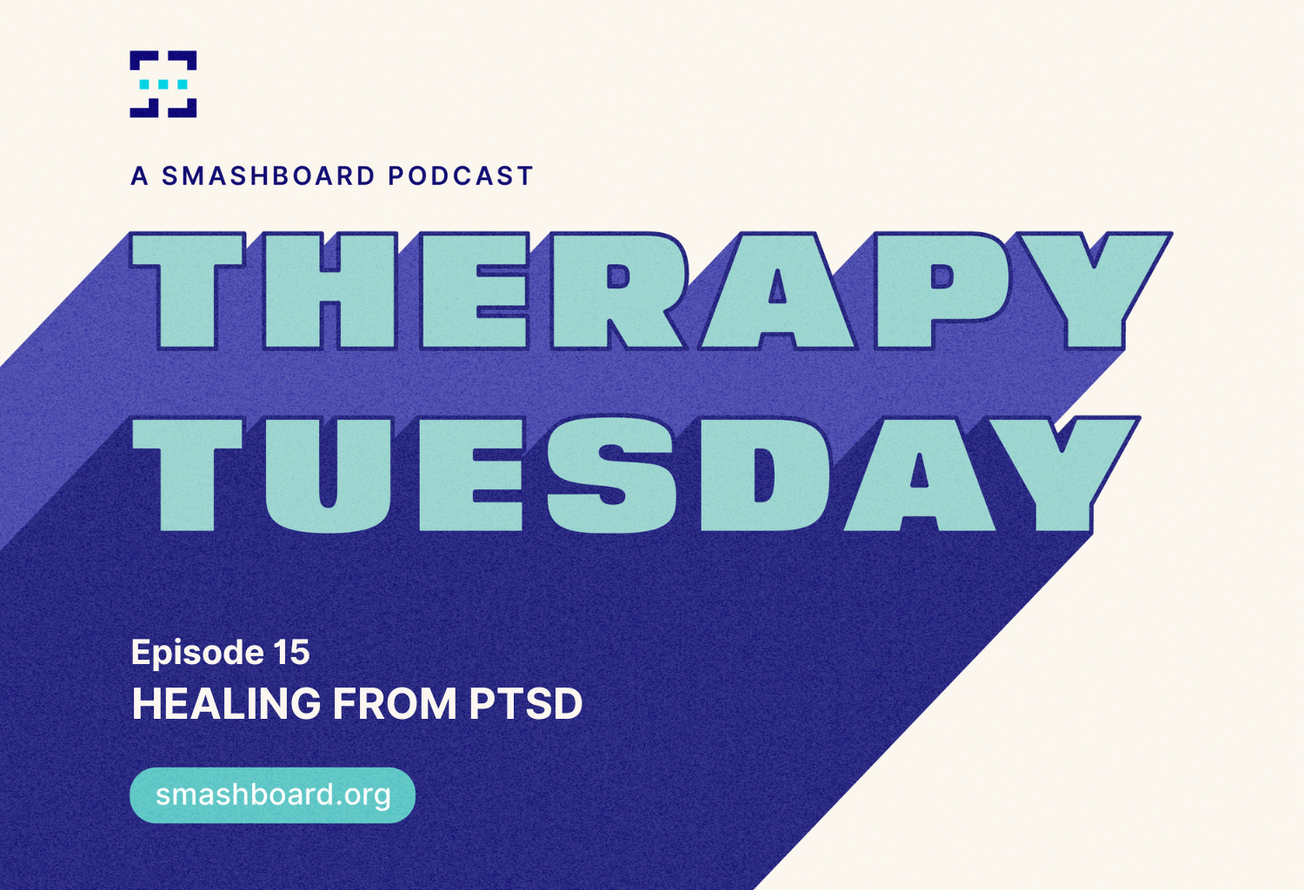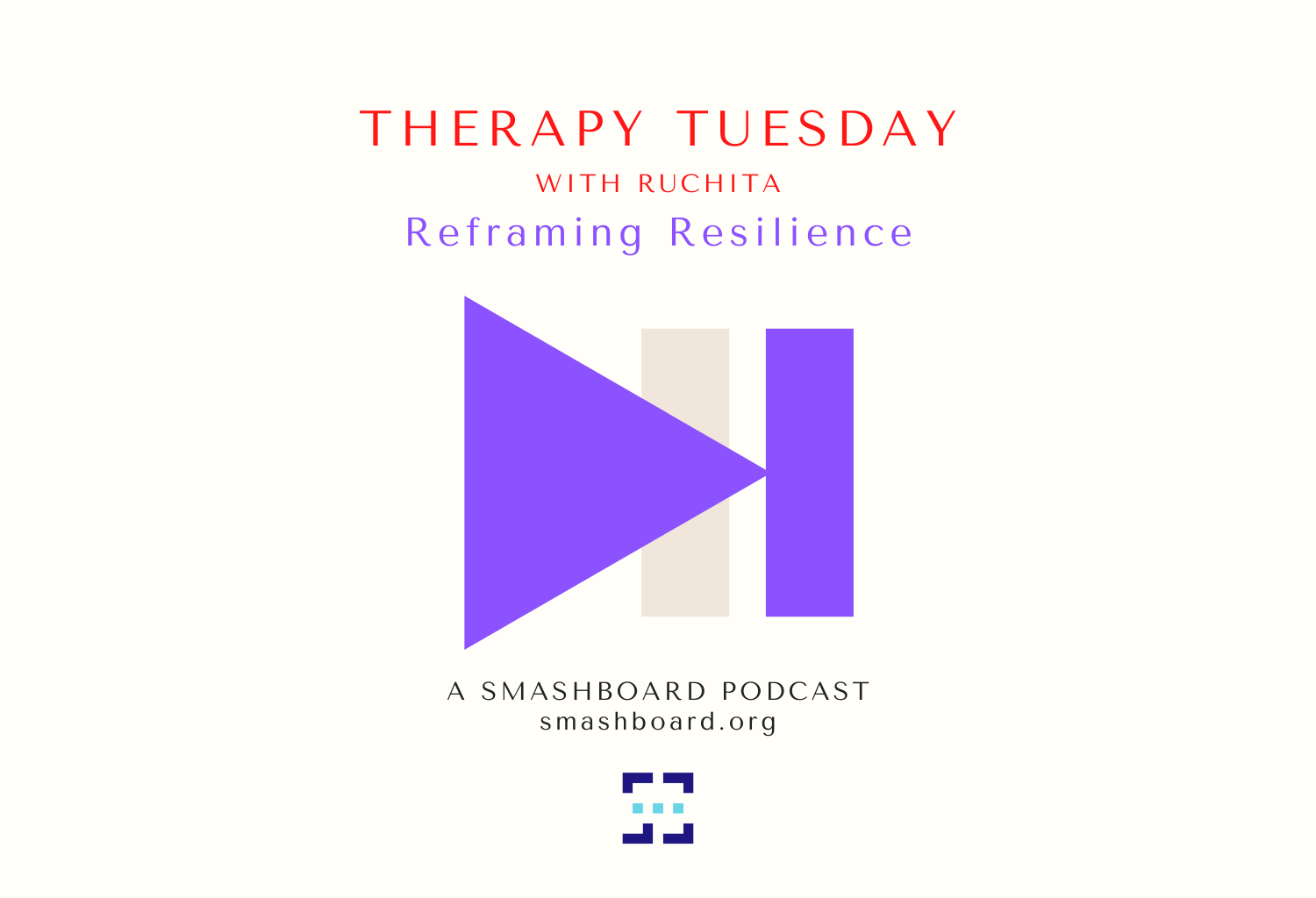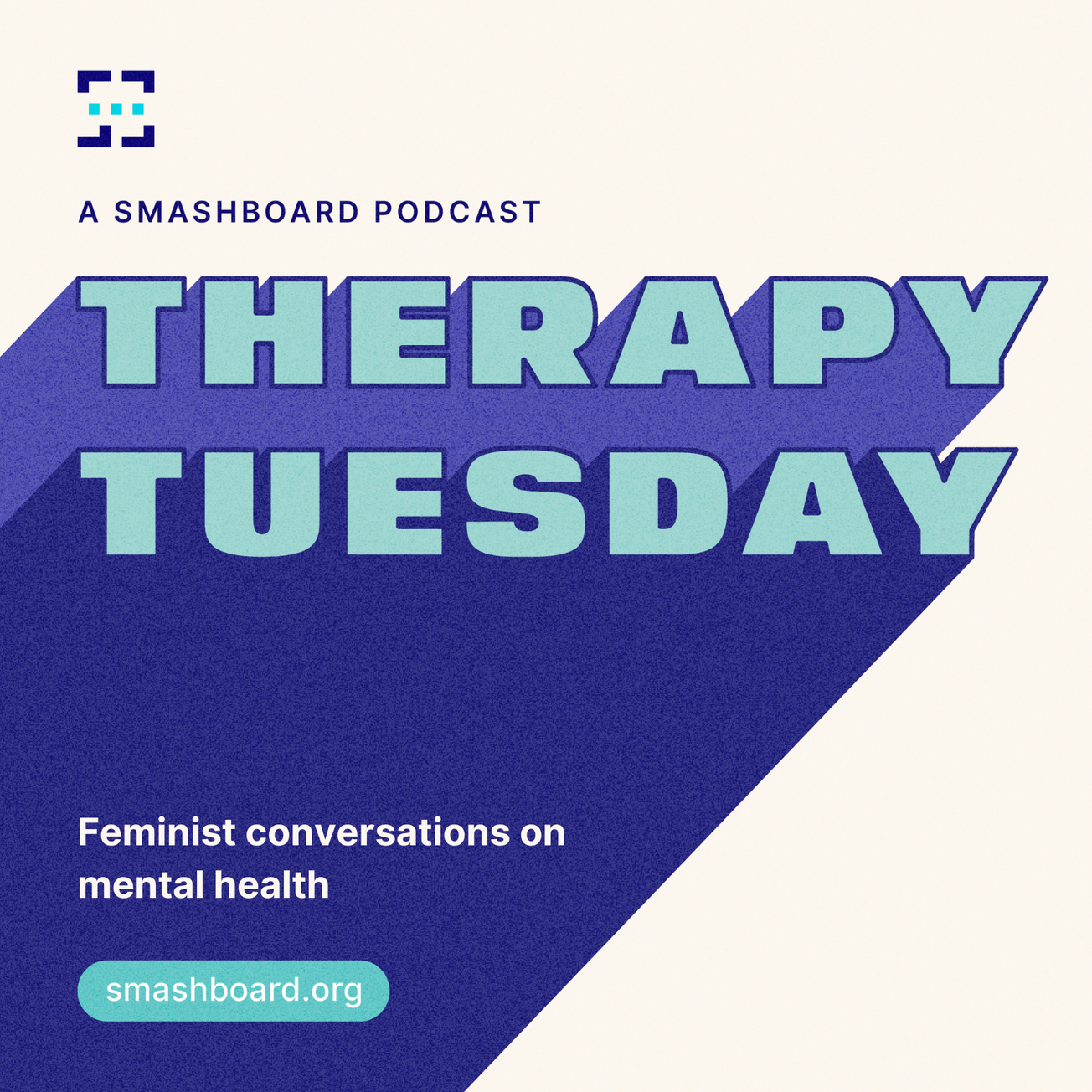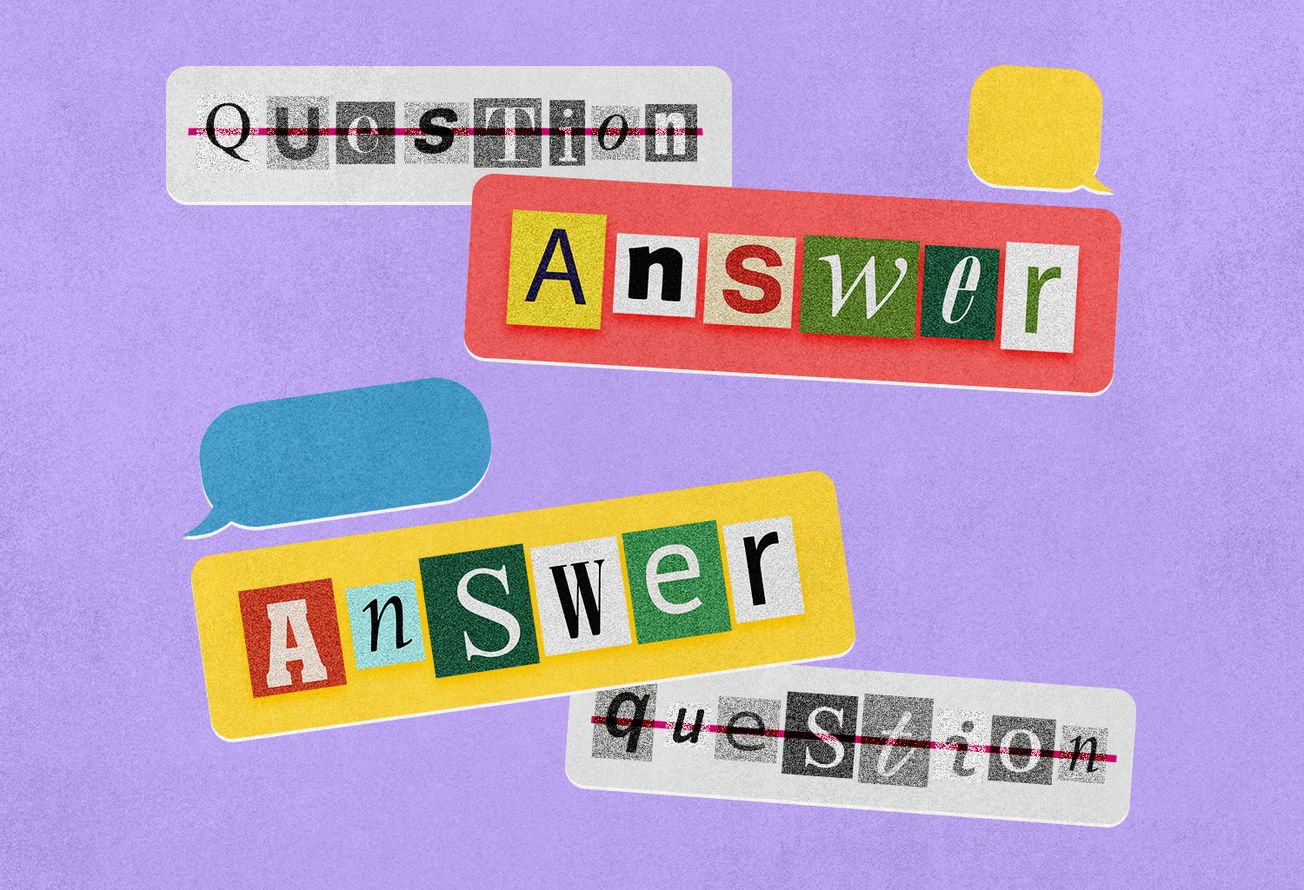Listen to our feminist mental health podcast on your favourite platform. Links here. Please do rate us! And give us a thumbs up/like/star. Have a great Tuesday!
Credits
Host: Ruchita Chandrashekar
Audio Mix and Edit: Depot Records
Scroll down to the end for the full transcript.
APPLE PODCASTS
GOOGLE PODCASTS
SPOTIFY
FULL TRANSCRIPT OF THIS EPISODE:
Hi, this is Therapy Tuesday, Smashboard’s mental health podcast and I am your host Ruchita Chandrashekar. I am a behavioural health researcher and psychologist with a specialisation in trauma and post-violence recovery, and this podcast has been created for people who are looking to have conversations around mental health from a feminist perspective. Please remember this podcast aims to be an educational resource and is not a substitute for therapy or treatment.
In this episode, we thought to address psychological health concerns post-COVID in folx who have recovered. There have been multiple waves, multiple strains, multiple stressors over the last year and a half that have left an impact on our mental health but some specific markers have been observed in those who recovered from the virus. Now I had COVID a couple of months ago. It was mild but it was bang in the middle of the second wave in India that saw a scale of trauma that we could have never imagined. I feel like there is a lot that's getting missed because we're perpetually stressed but there are some observations I've made with those who made a full recovery-irrespective of severity. An article in The Hindu from January 2021 stated that The District Mental Health Programme has been fielding calls from patients in the post-COVID phase, after they have tested negative. In one instance, a son called the helpline on behalf of his father who was experiencing behavioural issues including heightened anger and memory loss after testing negative for the virus. In another case, counselling was provided to a nine-year-old who, after testing positive for the virus, re-lived some of the trauma of a heart surgery the child went through two years ago that led to panic attacks. Now this doesn’t have to be typical with cases of people who were hospitalised or had severe COVID. We’re still learning about the long-term biological impact of COVID on the human body and we need to remember that the maintenance of our emotional well-being is a bio-psycho-socio-cultural process. So it doesn’t matter if you had mild, asymptomatic, or severe COVID. The virus has impacted your body and your immune system has worked very hard for your recovery. Dismissing impact based on severity of symptoms is futile and also a projection of internalised stigma about mental health issues. I often hear ‘But I didn’t have it this bad. I felt fine for most of it’ like COVID is just about the 14 days. I found COVID to be mostly manageable for my first 14 days till I developed a fever on day 15. 14 days has more to do with contagion and not the duration of the illness and with mutations on the rise, symptoms have been changing more and more. Invalidating your experience or somebody else’s does nothing for the cause. So here are some post-COVID observations that I have noticed as a clinician who has worked with a number of people who recovered:
Emotional lulls—so many unexplained emotional lulls. The best way for me to describe an emotional lull is disinterest in activities but also in socialising, communication fatigue, feeling blank in the head or overstimulation, and even random mood episodes. Someone called it a 'funk'. It’s like one day is good and then 3 days aren’t. There’s difficulty maintaining focus, a sense of heaviness while waking up in the morning, difficulty falling asleep or even sleeping a lot. Then there’s having a mix of good emotional days and then terrible days and feeling confused about why this is happening. Functioning may be intact or even fluctuating, but we know that functioning is not a measure of good health. A person with a migraine can get through a meeting if they push themselves, but it doesn’t mean that they’re okay. It seems like a dragged exhaustion that went from physical to emotional and has fully enmeshed. Random memories from the past coming up, circumstantial distress feeling more draining than usual; like a wave of exhaustion that never left but patients taught themselves to survive. Survival has been at the core of our existence since the pandemic started so our bodies have trained themselves to ‘get through it’. It’s your brain’s job to keep you alive so it will do its best to prioritise survival and adaptability, but try to think about the ways in which you’ve changed from late 2019 to now, in mid 2021. We’re different people. Similarly, it’s okay to feel like something’s changed post-COVID. Doctors have observed an increase in post-COVID patients reporting heart palpitations, breathlessness, sleeplessness and even memory issues. While they’re blood tests and scans might be normal, post-COVID patients have reported that they don’t ‘feel normal’. As a psychologist, I have found myself referring more and more post-COVID patients to psychiatrists for medication. Now can lifestyle changes make a difference? Absolutely. It helps to have a good diet, physical activity, reduced screen time, more sleep, and a work life balance. But do we live in circumstances that allow for this? Absolutely not. It takes a great degree of privilege to have a healthy lifestyle now. And when you’re post-COVID, your body throws changes at you that you never thought to prepare for. Like brain fog. I confused words for so long, I still do, sometimes. Or changes to other preexisting conditions like hypo or hyperthyroidism, which is bound to tamper with your emotional and physical wellbeing. Recovery from COVID is more complicated than we recognise and while empathy is integral, patience is more necessary. Patience from the support system, the workplace, relationships, and also from the self. So, what does the future hold for long-term recovery? Honestly, I don't know. I think focusing on this a day at a time is essential and assuming that each day could look different can also help. Long COVID is also very real and numerous people have been encountering symptoms for months. There is frustration, grief, and a whole lot of 'why me' but that also comes from adjustment stress to change and altering how we look at our bodies. We've been wired to think of ourselves as these productivity energy bunnies without realizing that the human body is actually perishable, so if we're going through some ups and downs post-COVID, it's only because this body fought long and hard to keep us alive. It's natural for it to take some time. A lot of this reframing is difficult because we're unlearning some kind of productivity and efficiency guilt. It's a difficult time and a lot of these responses are appropriate to the degree of stress experienced. So the two pointers I will leave you with are patience and acceptance. Patience for recovery, but also acceptance towards change, even if you don’t like it. That's all I have for you on this episode of Therapy Tuesday! I hope it left you with something to reflect on and I'll see you soon on another episode.


